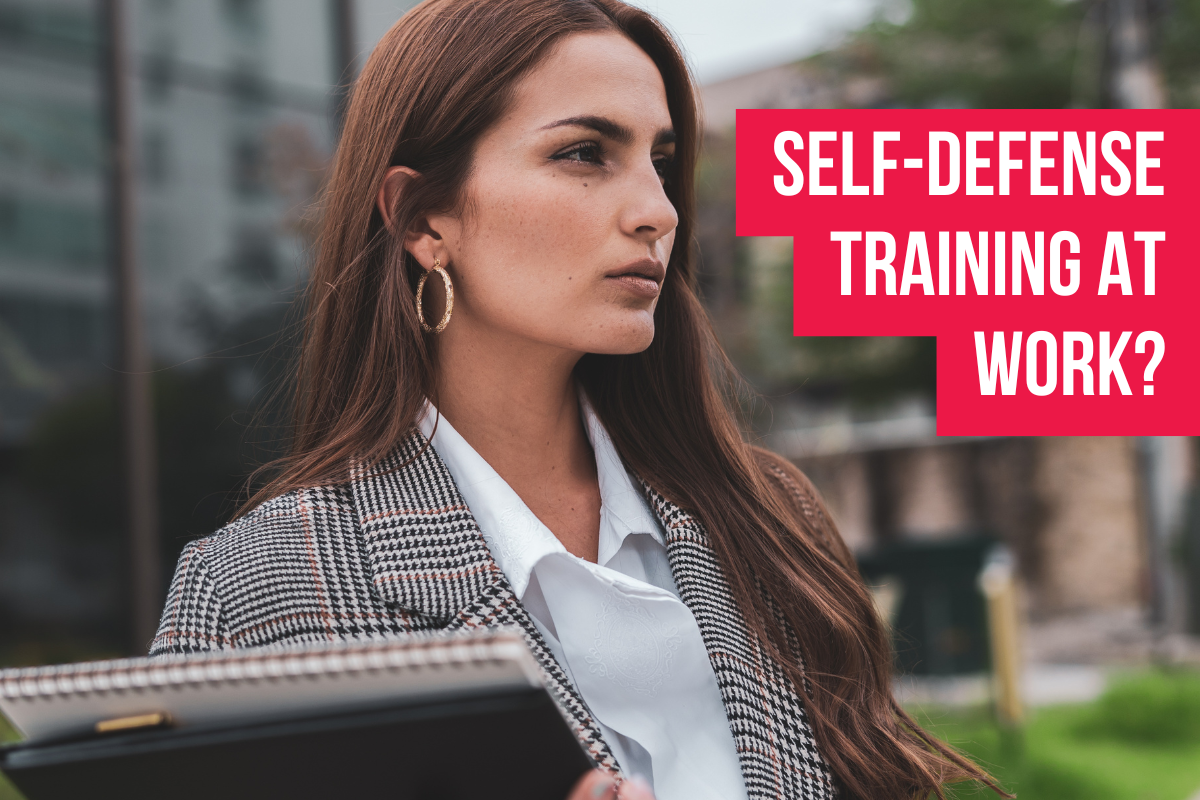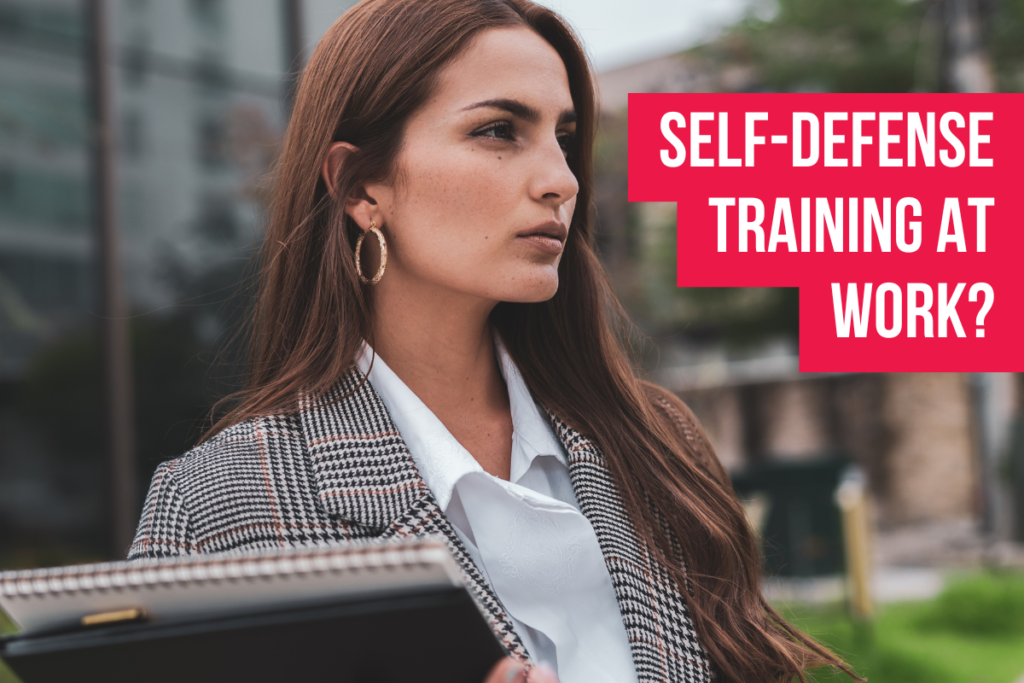
Workplace safety is about more than just avoiding accidents—it’s about creating a culture where employees feel safe, respected, and empowered. And that empowerment goes way beyond just knowing how to defend yourself physically. It’s about building confidence, setting boundaries, and trusting your instincts.
Self-defense training is primarily not about learning how to fight—it’s about preparing yourself mentally and emotionally to handle challenging situations in and out of the workplace. It’s about knowing how to stand up for yourself, how to recognize potential threats, and how to deal with them before they escalate. In the corporate world, these skills can make a huge difference.
1. The Growing Importance of Workplace Safety
Workplace safety is often associated with physical accidents, but actually, it’s also about psychological and emotional safety. As workplace harassment and stress-related issues are on the rise, companies are starting to realize that creating an environment where employees feel safe and confident is essential.
When employees feel secure, they are more productive, more engaged, and more likely to stay long-term. In fact, studies show that businesses that prioritize employee well-being see higher retention rates and better performance. When people feel safe and at ease, they tend to be more content, less worried, and more likely to get the things they want—whether it’s a promotion, better work-life balance, or healthier relationships with coworkers.
2. Self-Defense Training: Much More Than Just Fighting
Self-defense is often thought of as learning how to physically protect yourself, but it’s so much more than that. At its core, self-defense is about building the confidence to trust your instincts, to set boundaries, and to assert yourself in any situation. These skills apply far beyond physical altercations—they can help employees handle tough situations, defuse tension, and communicate more effectively.
Think about it: when you feel confident and in control, you’re more likely to speak up in meetings, handle difficult conversations with ease, and take charge of your work. These are all qualities that can make a person stand out in the workplace and contribute to a healthier, more productive environment. Employees who feel empowered are also more likely to get what they want—whether that’s a raise, a new client or project, or simply a greater sense of satisfaction in their work.
3. The Benefits of Self-Defense Training in the Workplace
The benefits of self-defense training go far beyond personal safety. Here’s how it can positively impact the workplace:
Confidence and Assertiveness: Employees who are confident in their abilities are more likely to assert themselves when needed, whether it’s in meetings, with clients, or in day-to-day interactions. They don’t hesitate to voice their opinions or stand their ground.
Awareness and Intuition: Self-defense teaches you how to listen to your intuition and recognize red flags. This can help employees navigate potential conflicts earand avoid situations that could lead to harm—whether physical or emotional.
Mental Resilience: Self-defense training helps build mental toughness, making employees more resilient in the face of stress or adversity. They’re better equipped to stay calm and think clearly, even when things get tough. This mental resilience helps them reduce worry, fear, and anxiety, making them more content and focused on what really matters.
Stronger Workplace Culture: When employees feel confident and empowered, it creates a culture of respect and mutual support. People are more likely to collaborate, communicate openly, and support one another in a positive work environment.
4. Real-World Applications in the Workplace
Self-defense skills aren’t just about physical confrontation. They’re about handling everyday situations with confidence and clarity. Here’s how these skills can play out in the workplace:
Tough Conversations: Employees who are comfortable setting boundaries and asserting themselves can handle difficult conversations without fear or hesitation. Whether it’s giving feedback, negotiating, or standing up for themselves, they are more likely to succeed.
Defusing Tension: Workplace stress is inevitable, but employees trained in self-defense are better at staying calm and diffusing tense situations. They’re able to approach conflict with a clear mind, reducing the chances of escalation.
Leadership Development: Confidence, communication, and the ability to handle pressure are key leadership skills. By teaching employees to trust themselves and set boundaries, you’re helping them develop the qualities that make great leaders.
5. Why Companies Should Invest in Self-Defense Training
Investing in self-defense training isn’t just about safety—it’s about creating a stronger, more resilient workforce. Here’s why it’s worth considering:
Increased Productivity: When employees feel confident and safe, they’re more focused, more engaged, and more productive. Empowered employees perform better and contribute to a more positive work environment.
Reduced Workplace Incidents: Self-defense training helps employees avoid and de-escalate potentially harmful situations, whether they’re physical, emotional, or psychological. The skills learned can reduce the likelihood of harassment, bullying, and other workplace issues.
Improved Company Culture: When a company invests in employee well-being and personal empowerment, it sends a strong message that the business values its people. This creates a more positive, supportive, and inclusive workplace culture.
Adaptable Skills for Future Challenges: In today’s fast-changing world, resilience is key. Employees who are mentally tough and able to handle stress are more likely to adapt to change, thrive in uncertain situations, and continue to grow in their roles.
Conclusion
Self-defense training isn’t just about protecting yourself from physical threats—it’s about building the mental and emotional strength to handle anything life throws at you. Whether it’s navigating difficult conversations, setting boundaries, or handling workplace stress, the skills learned through self-defense training can help employees feel empowered and confident in all aspects of their lives.
When employees feel empowered and secure, they’re happier, less worried, and more likely to get what they want in both their personal and professional lives. Investing in self-defense training helps create a workforce that is not only safer but also stronger, more resilient, and more productive. When employees feel confident and supported, they can take on any challenge that comes their way.


E aí, turma da aposta! A betnacional4 parece ser uma boa opção para quem gosta de apostas esportivas. Tem uma boa variedade de esportes e mercados. Vale a pena dar uma olhada! Clica aqui: betnacional4
Alright guys, checking out cw777 and so far things are looking pretty good. The site’s easy to navigate, and they seem to have a decent selection of games. Will update later after I’ve had a proper go but initial impressions are positive! Give cw777 a shot!
777pubcasino is becoming my new favorite. Good games and seems pretty legit. Give it a whirl! Here’s the link to get started: 777pubcasino
Tried my luck with zwwbet.net the other day and it was pretty decent! Nothing too flashy, but a solid, reliable place to place some bets. Signup was easy and the selection of sports and games is impressive. See for yourself at zwwbet!
Hey there, just dropped by 212betnet and thought it was pretty neat. Different promotions and lots of events to bet on! Easy to use as well. I think that 212bet is on the right track for future development in my book. See for yourself over here: 212betnet
Casinobetzar is where I like to try my luck sometimes. It has good games and the interface is simple and straightforward, like it a lot. Want to try? Visit casinobetzar.
Just wanted to drop a quick note about 999jilicom. It’s a solid platform. I like the variety of games they offer. Depositing and withdrawing is pretty smooth too. Not the flashiest site out there, but it gets the job done. Give it a try if you’re after a no-frills, reliable experience.
F666, kinda edgy name, right? But the site’s actually pretty clean. Got my attention with the promo offers. Could use some better customer support, but hey, no one’s perfect. Worth checking out for the bonuses alone. f666
Nohu28, haven’t heard much about this one, but decided to take a gamble. Found some unique games I haven’t seen elsewhere. Worth a peek if you’re lookin’ for something different. nohu28
234winph’s got the hook up with tons of bonuses! I started with 300, and won 3000! I was so happy. You can find more about it here 234winph.
Alright, so I checked out Z7Casino recently. Gotta say, the site’s pretty slick and easy to navigate. They have a decent selection of games, too. Could definitely lose a weekend afternoon browsing around. Give z7casino a shot if you’re looking for something new!
Heard about 666betfreebet offering some free bet action, and I had to try it out. The promo was pretty sweet, easy to claim, and I actually managed to win a little something! Website design isn’t ground-breaking, but it works. See what freebies you can get over at 666betfreebet.
9000com? It’s…there. Some of the games are fun, some are not. Your mileage may vary. Go see if it tickles your fancy. 9000com
Jili68 is alright. Easy to kill some time. Not the best I’ve seen, but totally playable. Give it a spin if you are looking for a chill experience. jili68
Jili88ph is where it’s at, fam! Quick payouts and a crazy selection of Jili games. Been having a blast stacking those virtual chips. Check it out! jili88ph